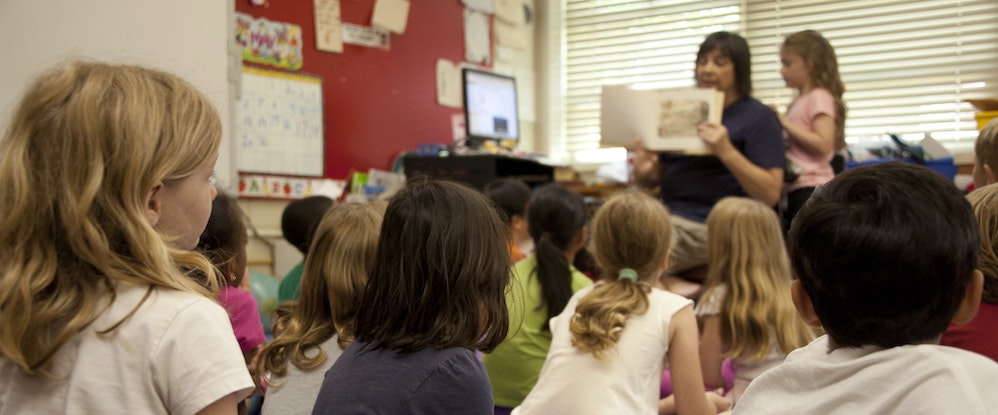Posts
Article
How changing your approach to classroom discussion can unlock children’s potential
Posted on 21st July 2022

It’s a familiar challenge for primary school teachers — how do you encourage all of your children to contribute to classroom discussions, rather than just the usual few voices?
Philosophy for Children (P4C) is a distinctive approach that provides a safe space for discussion and allows everyone to take part without fear of getting it wrong.
At Sheffield Institute of Education, we were one of the first universities to incorporate P4C into our teaching courses. And the teachers we train are finding that the benefits of the programme go far beyond improving classroom debate — spreading into all aspects of the curriculum, from PSHE to maths.
The P4C formula
So what is Philosophy for Children, and how does it work?
It’s a step-by-step method for facilitating discussion. In practice, it involves trying to answer a question that comes out of the students’ interests, using dialogue and debate to get closer to the truth.
Crucially, it offers a safe environment for discussion, encouraging children to take risks in their thinking.
Discussion centres around the four Cs: critical, caring, collaborative and creative thinking.
Students feel involved from the start by voting for the question to be discussed, and then specific methods for dialogue are used to ensure everyone feels able and willing to take part.
What do teachers think?
Rhianne Southern is a Sheffield Hallam graduate and Y1 teacher at Wisewood Primary School. She has been using Philosophy for Children in her classroom, and has seen the impact.
“It provides a gradual approach,” she says. “It’s about providing opportunities to support sensitive disagreements.”
Rhianne sees P4C as going beyond simply facilitating discussions, to allowing her students to gain a sense of their place in the world.
“We want children to be able to articulate their thoughts using the vocabulary they are given,” she says. “We want to enhance who they are as a person so they can go on to be emotionally literate children who can contribute to the school community and wider society.”
Rhianne is embedding P4C throughout the curriculum at her school, starting from early years — which impressed Ofsted inspectors on a recent visit.
“They were very keen on how we are encouraging children to be critical thinkers and giving them time to reflect on their learning.”
Further applications
Primary school teacher Oli Bartlett researched P4C for his masters at Sheffield Hallam. He’s been using P4C methods to help his students solve mathematical problems.
He found that his students gained confidence from the environment where exploration and creative thinking was encouraged — and where there wasn’t a fear of getting the answer wrong.
“Before I started using Philosophy for Children, in group work kids wouldn't listen to each other's opinions respectfully, or would often point out if someone got the wrong answer,” he says.
“P4C has been an effective catalyst for my class to be able to work together and think critically. It’s built self-esteem which can help kids solve mathematical problems.”
Oli says a key part of P4C has been getting his students to recognise not just their own thought processes, but that of those around them.
“It elevates their thought processes to higher levels,” he says. “If that permeates to other subjects, that’s when the critical thinking starts to happen.”
Rhianne agrees. “The more you use P4C, the more the kids understand why we want to encourage different ways of thinking,” she says. “As they grow up into an ever-changing society, they'll have the wealth of understanding that they can take forward with them and be prepared for the future.”
You can watch presentations from researchers and teachers, including Rhianne and Oli, from our recent P4C event here.
Comments
There are no comments for this post.
